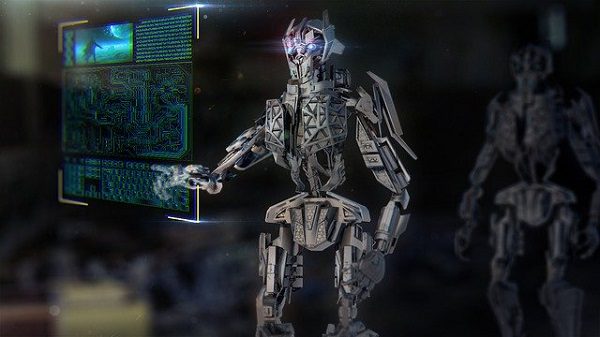
As we’ve recently written, IT – and cybersecurity in particular – has a serious shortage of skilled personnel. Jobseeker interest supplies less than 65% of employer demand in most countries. In the UK, 44% of firms are not where they want to be in terms of IT infrastructure and staffing; 150,000 positions are currently unfilled.
As artificial intelligence (AI) becomes more accessible, efficient and sophisticated, we find ourselves wondering – can it fill some of those empty vacancies, and, importantly, should it?
Glass half full
In many cases, AI can do boring jobs better than humans. Over 90% of cybersecurity incidents are ultimately down to human error – users clicking bad links, opening bad attachments, failing to change or secure passwords and so on. AI can help the average user spot phishing websites, malware attachments and spam, reducing the number of incidents at the greatest point of failure.
It can also help cyber security professionals. The average company handles 200,000 cybersecurity events per day. Most are insignificant; some are significant threats demanding human intervention and web trawling to find appropriate hands-on removal strategies. Deep learning computers can screen and filter these threats, as well as carrying out the research more rapidly than human users.
AI is already transforming businesses outside the realms of security, too. In the finance sector, extra raw computing power can detect bad transactions, offer personalised loan deals based on harvested data, and carry out the formulaic, repetitive work of data processing involved in satisfying compliance requirements.
General Electric – a 120-year-old business not immediately associated with tech agility – has transformed itself by collecting and analysing big data. Everything from inspecting bills and logistics to improve bargaining with suppliers to ‘digital twin’ modelling of equipment to predictively diagnose faults is now carried out by AI.
This grunt work could be done by people – but at a tremendous cost in man-hours and with a far greater margin of error. Research by Accenture indicates that productivity could increase by up to 40% if AI were fully harnessed for such data-handling tasks.
Glass half empty
“Robots will take all our jobs” – that’s the short version.
Bill Gates predicts that by the mid-2020s, labour demand for low-skill jobs will be so low that businesses will need tax incentives to hire humans at all.
Gates is concerned about minimum-wage jobs, but more skilled roles are also set to change. It’s a question of finding meaningful work for employees to do while they’re on the clock. If businesses can automate formulaic, repetitive data handling and research tasks, the people who currently do that work will have time on their hands – and when there’s spare time, personnel cuts are likely.
“Half the workforce currently performing them would be redundant.”
An Oxford University study from 2013 identifies over 700 jobs which could be automated so extensively that half the workforce currently performing them would be redundant. Loan officers, receptionists, legal assistants and sales personnel are all facing greater than 90% odds of replacement by bots.
Customer-facing roles are particularly vulnerable. Facebook is pitching chatbots to automate customer service conversations via its Messenger app. McDonalds is negotiating an AI ordering service that will run through chat app Kik Messenger – and when it becomes apparent that chatbots are notably cheaper than self-service kiosks, supermarkets may follow suit.
Glass is not full, let’s fill it
The early tests of electroencephalography equipment – brain-to-computer connections – suggest a different perspective. AI isn’t there to replace the human mind, but to enhance it – the computer is ultimately still a tool to help human decision makers. It may be able to process, calculate, search and sort data more efficiently, but it’s not going to supercede the human capacity to read context and make nuanced judgements.
Not yet, at least. Google’s DeepMind AI has just taught itself to simulate walking – which is impressive, but it’s not exactly Usain Bolt.
There’s some way to go before AI can replace a cybersecurity professional with years of training and insight. For us, as recruiters, the important thing is the human element.
All the potential of AI is still committed to easing cognitive load, filtering data or providing information to people. This means people need the appropriate training and skills to deal with that data, to apply it – and to understand how and why things may slip through the net. The tool is only as good as its user.
While AI is an option, the best way to fill the skills gap is with you. Take a look at the jobs on offer through identifi.